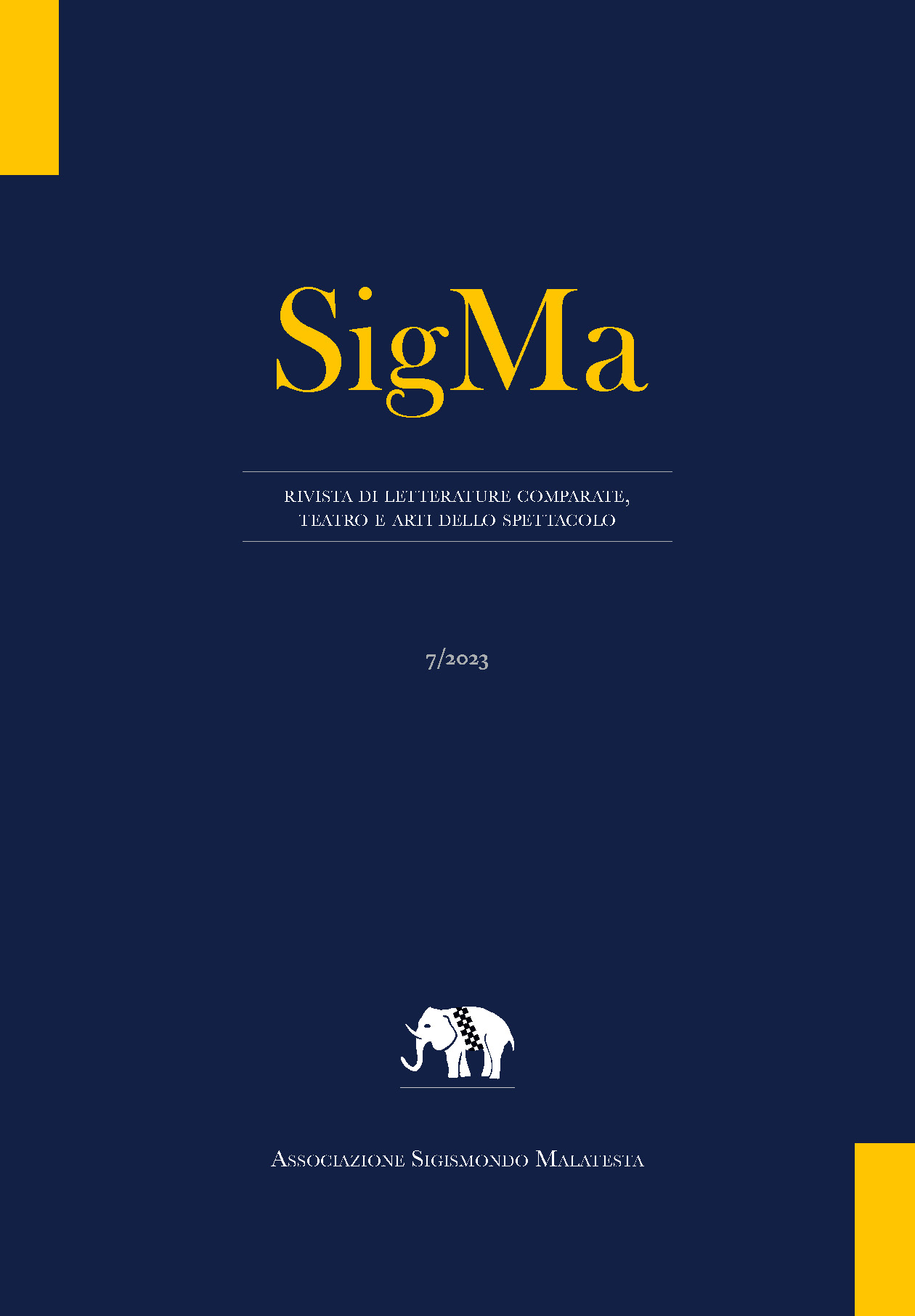La fuga dalla Storia. Erranza, esilio ed esodo nella ‘Trilogie allemande’ di L.-F. Céline
Abstract
La trilogie allemande di L.-F. Céline ripercorre le tribolate peregrinazioni che lo stesso scrittore, mosso dall’obiettivo di raggiungere la Danimarca, compie tra il 1944 e il 1945 attraverso una Germania in preda all’imminente crollo del Reich. La componente memorialistica dell’opera è tuttavia bilanciata da una tensione visionaria che, sommandosi a una forte tendenza digressiva, finisce per mettere in questione la ricostruzione lineare e ordinata degli eventi. A partire da queste considerazioni più generali, l’articolo si propone di riflettere sulle diverse implicazioni che, nella Trilogie allemande, caratterizzano il tema dell’erranza: dove l’indagine dello spazio non è più un movimento razionale e volontario ma una peregrinazione allucinata attraverso cui la sorte dell’io celiniano si sovrappone a quella di interi popoli in fuga. La crisi del viaggio, strumento ormai incapace di assicurare all’io un solido apporto conoscitivo, viene riflessa dalla costruzione dei romanzi, volutamente privati di linearità e sottoposti anzi a un andamento centrifugo. Alternando cronaca, memoria, invenzione e digressioni polemiche, Céline perturba la referenzialità del racconto al fine di registrare, e infine rendere comunicabile, quello sfaldamento dei paradigmi collettivi che l’esplorazione del mondo ha messo sotto gli occhi dell’io narrante. In questo senso, la fuga verso il nord Europa diventa anche – e soprattutto – fuga dalla Storia intesa come concatenazione logico-causale di eventi, e dunque come sola garanzia di verità. Nel momento stesso in cui ambisce a fornire un’interpretazione più profonda della realtà, l’immaginario dell’esilio che sorregge la Trilogie è però inseparabile da un ritorno paranoico alla situazione personale dello scrittore, il quale sfrutta le potenzialità metaforiche legate al campo semantico del viaggio per presentarsi come il portavoce di un’umanità ingiustamente destinata al sopruso.
Downloads
SigMa pubblica in internet, ad accesso aperto, con licenza:
|
|
CCPL Creative Commons Attribuzione |
L'autore conserva il copyright sul suo contributo, consentendo tuttavia a chiunque "di riprodurre, distribuire, comunicare al pubblico, esporre in pubblico, rappresentare, eseguire e recitare l'opera", purché siano correttamente citati l'autore e il titolo della rivista. L’autore, al momento della proposta di pubblicazione, è inoltre tenuto a dichiarare che il contenuto e l’organizzazione dell’opera è originale e non compromette in alcun modo i diritti di terzi, né gli obblighi connessi alla salvaguardia di diritti morali ed economici di altri autori o di altri aventi diritto, sia per testi, immagini, foto, tabelle, sia per altre parti di cui il contributo può essere composto. L’autore dichiara altresì di essere a conoscenza delle sanzioni previste dal codice penale e dalle leggi speciali per l’ipotesi di falsità in atti ed uso di atti falsi, e che pertanto Reti Medievali è esente da qualsiasi responsabilità di qualsivoglia natura, civile, amministrativa o penale, e sarà dall'autore tenuta indenne da qualsiasi richiesta o rivendicazione da parte di terzi.

